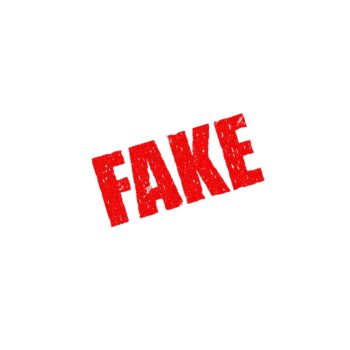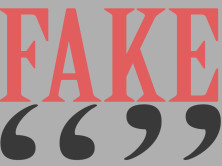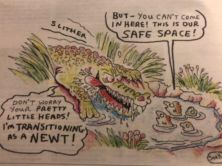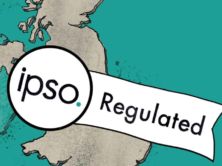
(Credit: Pixabay)
A few months ago, Pakistan’s defense minister, Khawaja Muhammad Asif, threatened taking nuclear action after reading a fake news article. Around the same time in December, a Pakistani TV news station ARY News lost a libel lawsuit over 24 different programs accusing a Dubai businessman of treason and blasphemy.
That same station called Pakistani teen Malala Yousafzai an “enemy of Islam” and alleged both she and her father were blasphemers and traitors, causing the Pakistan Electronic Media Regulator Authority to censor the station.
Will such errors and problems in Pakistan’s media continue?
A new code of conduct for journalists in Pakistan will hopefully redress these problems. The new code warns against fake news and calls for accuracy in the media.
While there are other ethics codes and codes of conduct in Pakistan, “this code aims to cover all platforms of journalism,” instead of just one form, Tom Law told iMediaEthics by e-mail. Law is a communications officer for the Ethical Journalism Network, which was involved in the development of Pakistan’s code.
“It’s a single national code that aims to replace existing codes produced by national media associations in the press and broadcasting,” he explained. “It is a national, industry-wide supplement to existing in-house codes that have been adopted by some media houses.”
The code recommends newsrooms have ethics committees to upload media ethics and ombudsmen to represent reader concerns. Further, the code recommends journalists have access to training and are provided materials needed to maintain their health and safety.
The code, which went into effect on Feb. 24, is published on AccountableJournalism.org.
Journalists “should not be coerced to file unsubstantiated or unverified information,” the code states.
News outlets should ensure “equal coverage” to all sides of the story, make sure diverse and minority voices are represented and try to maintain a diverse newsroom.
The code also warns against conflict of interest and bias both by journalists and media companies.
Further, the code reminds journalists to “respect the privacy and ensure confidentiality of survivors/victims” and not to go undercover unless it is absolutely necessary and in the public interest. The code also called for transparency, safety, and responsiveness to complaints about reporting.
The code has six sections:
- Truth and Accuracy
- Pluralism
- Independence, Fairness and Impartiality
- Confidentiality and Privacy
- Accountability and Good Governance
- Do No Harm
How the Code Originated
The code also states how it came to be.
In 2015, Pakistan Coalition for Ethical Journalism assembled senior and other journalists to work toward creating the code.
PCEJ held meetings with 1,477 media stakeholders across Pakistan to discuss the code and get ideas for what to include. Then, in December, there was a two-day workshop for a “final fine tuning” of the information gathered.
Other groups that worked on the code were Rozan and the Danish organization International Media Support. iMediaEthics has contacted all of these groups for comment and more information.
The news of the new code was announced in a press release from the Ethical Journalism Network.
The Ethical Journalism Network’s Law told iMediaEthics by e-mail that EJN’s Director Aidan White “was involved with Pakistan media leaders in helping to set up the PCEJ in 2012.”
“Over the past year, the EJN has helped with drafting and advising the new codes, but our efforts to help on the ground were hampered by the fact that Aidan couldn’t get a visa to enter Pakistan,” Law explained.
Three years ago, the Pakistan Press Council chairman Raja Shafqat Abbasi advised the country to adopt a code of conduct. iMediaEthics has contacted Abbasi to ask if he or the press council were involved in the creation and if they will be adopting the code. We’ve also contacted Pakistan media group Dawn and ARY News to ask if they will use the code.
The Pakistan Coalition for Ethical Journalism identifies itself on its website as “established in May 2012 as part of a new campaign to strengthen standards in media in partnership with stakeholders. It is a network of media professional groups and leading journalists in Pakistan – and with support of international support platforms – that are working together to promote fresh debate in Pakistan on.”
Rozan identifies itself as an “Islamabad-based NGO working on issues related to emotional and psychological health, gender, violence against women and children, and the psychological and reproductive health of adolescents.”
Disclosure: iMediaEthics is a member of the Ethical Journalism Network.







Comments Terms and Conditions